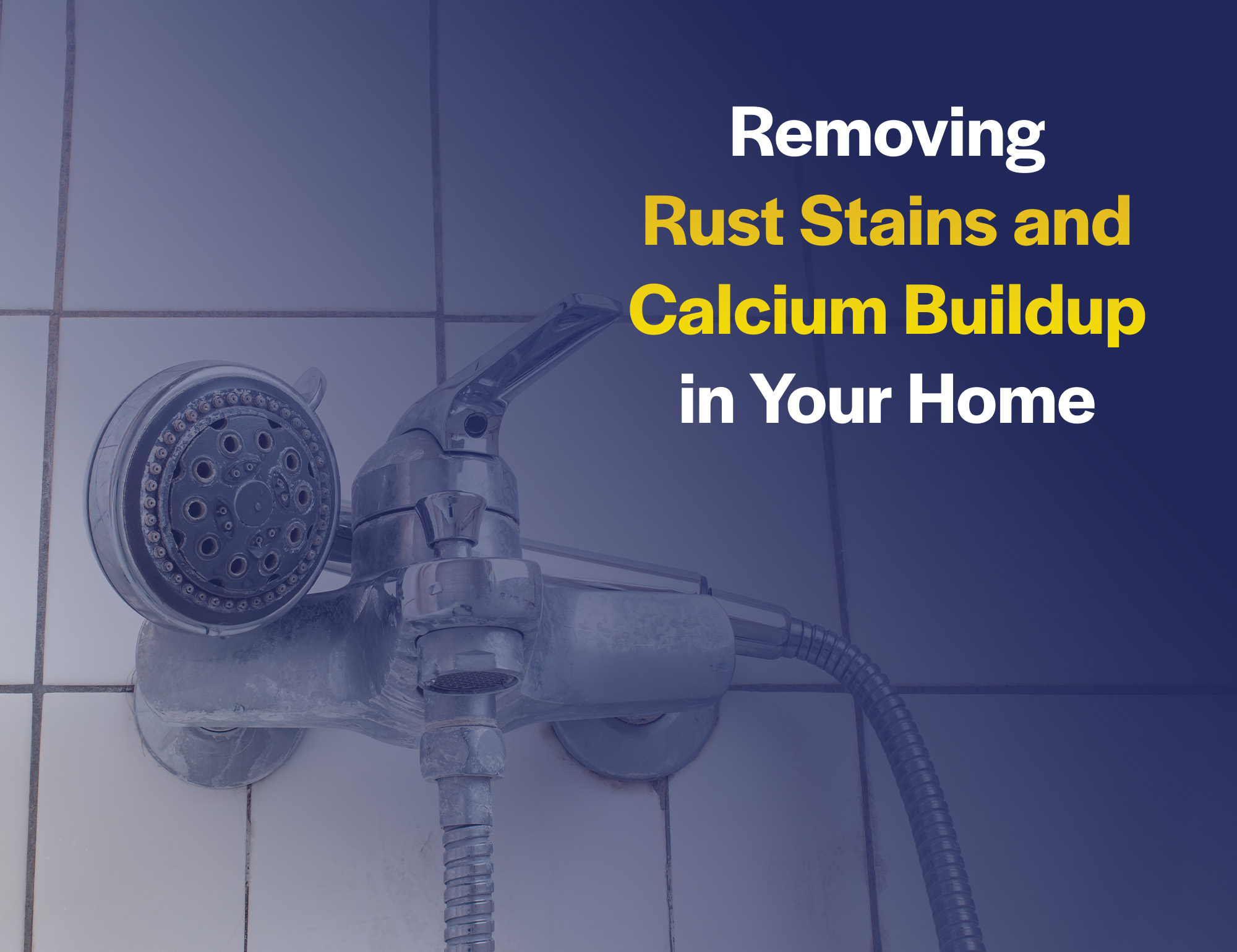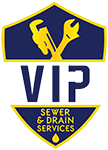
Fixtures with constant contact with water are prone to rust stains and calcium buildup. This includes your faucets, sinks, tub, and toilet. It can be frustrating when you put forth an effort to keep your bathroom sparkling clean, only to find that these unsightly stains and buildup have invaded your fixtures.
What exactly causes rust stains and calcium buildup? Understanding this will help you remove and prevent this from happening in your home.
Rust Stains & Calcium Buildup
Rust forms when iron particles come in contact with water and oxygen. Think of metal canned products, such as shaving creams that leave a rusty ring in your tub. This most often occurs in homes that rely on well water or where water has a high pH level, high calcium concentration, or high alkalinity, all referred to as hard water.
Just like rust, calcium buildup is also caused by hard water. Where rust forms from the iron particles in hard water, calcium buildup, or limescale, is the result of the calcium particles in hard water. This is a common problem, often spotted around the spout of your faucet or on your shower head.
Removing Rust Stains & Calcium Buildup
Rust and calcium will dissolve away in acid-based products. Avoid using chlorine bleach as this can make rust stains permanent.
Vinegar. Vinegar is the most common and recommended household acid, which quite effectively removes rust stains and calcium buildup. Spray vinegar onto the affected area and let it soak for a few minutes – longer depending on the severity of the staining. The key is to scrub the stain away before letting the vinegar dry. Repeat the process until the stain is completely gone.
Because vinegar is an acid, it eats away at metals, hence its effectiveness at removing rust and calcium buildup. However, be mindful not to drain excessive amounts of it as doing so can harm your plumbing over an extended period of time. Also, keep vinegar away from stone countertops such as granite or marble as it will eat away at the surface.
Citric Acid. If you’re not too fond of the smell of vinegar, citric acid is a great alternative for rust and calcium removal. Citric acid is found in lemons, limes, and any other citrus fruit. There are a few ways to approach the stain with citric acid.
First, you can slice a lemon in half, apply some baking powder to the sliced edge and treat it like a sponge, scrubbing away the stain or buildup. Alternatively, you can combine lemon juice with baking powder to create a paste, apply it to the stained area and leave it be for an hour or so, allowing the acid from the lemon juice to break down the minerals.
Gentle Abrasives. This method will require the most physical labor on your part but can be a simple and quick solution for mild rust stains or buildup. Baking soda, table salt, or pumice powder can be used to gently scrub away stains and buildup. Wet the affected surface with water or an acid-based cleaner, sprinkle your powder of choice, and buff gently. This is safe and gentle enough to prevent damage to the porcelain, fiberglass, or enamel finishes of bathroom fixtures, while still getting the job done.
Preventing Rust Stains and Calcium Buildup
Unfortunately, even if you successfully remove all rust stains and calcium buildup, without proper maintenance they will continue to reappear.
As we mentioned before, rust stains and calcium buildup are the results of iron-rich, hard water. You can counteract this by installing a filtration system to soften the water, thus preventing future stains. Avoid placing canned or metal containers and products in your shower, tub, or sink. These are very likely to rust as they come into contact with water. Keep your bathroom dry and wipe up residual water after you shower or wash your hands to prevent buildup. Promptly address water leaks that can cause stubborn rust stains over time and use acid-based cleaners in your regular cleaning routine.
For other useful plumbing tips or frequently asked questions, visit our Resource page.


